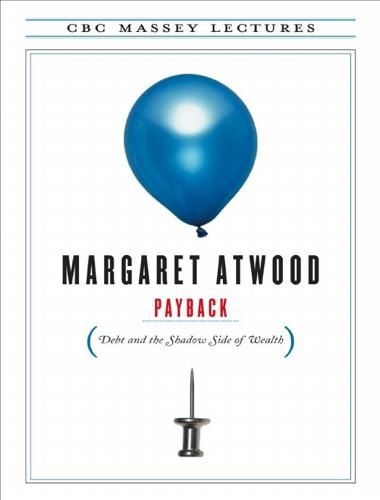
Payback: Debt and the Shadow Side of Wealth
by
Margaret Atwood
Published 15 Mar 2007
Atwood, for sending me various articles on epigenetics. There are many variants to the “Punch-buggy, no punch-backs” game. In one, the colour of the Beetle must be specified. I leave it to the experts to dispute the many rules. For primate trading, see De Waal, Frans, and S. F. Brosnan. “Monkeys Reject Unequal Pay.” Nature (2003): 425. Fisher, Daniel. “Selling the Blue Sky.” Forbes.com. 2008. Forbes. 20 February 2008. <http://www.forbes.com/business/global/2008/0310/070.html>. ————. “Primate Economics.” Forbes.com. 2008. Forbes. 22 February 2008. <http://www.forbes.com/2006/02/11/monkeyeconomics-money_cz_df_money06_0214monkeys.html>.
…
Poems, Songs, and Letters: The Complete Works of Robert Burns. Ed. Alexander Smith. London: Macmillan, 1932. Chapman, Sasha. “Wanted: Organic Farmers to Fill Toronto’s Markets.” Globe and Mail. 24 May 2008: M5. Cooper, James Fenimore. The Pioneers. New York: Grosset and Dunlap, 1948. De Waal, Frans, and S. F. Brosnan. “Monkeys Reject Unequal Pay.” Nature (2003): 425. Dickens, Charles. A Christmas Carol. New York: Weathervane, 2007. ————. David Copperfield. Ed. Nina Burgis. Oxford: Oxford University Press, 1999. ————. A Tale of Two Cities. Ed. Andrew Sanders. Oxford: Oxford University Press, 1988. Duncan, Christopher, and Susan Scott.
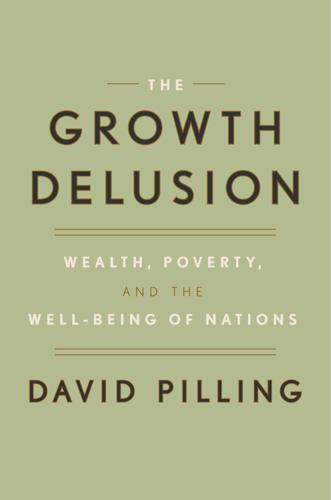
The Growth Delusion: Wealth, Poverty, and the Well-Being of Nations
by
David Pilling
Published 30 Jan 2018
They now enjoy a bigger slice of America’s economic pie than their counterparts did in the so-called Gilded Age of the late nineteenth century.6 If your country’s economy is growing solely because the rich are getting richer and if you are working harder and harder just to maintain your living standard, then you are entitled to ask what, precisely, is all this growth for? That is particularly true since study after study shows that people’s happiness depends not on their absolute wealth, but rather on their wealth relative to those around them. In an experiment written up in a paper called “Monkeys Reject Unequal Pay” two capuchin monkeys were initially perfectly content with a reward of cucumbers when they successfully performed a task. But when one monkey was subsequently given tastier grapes as a reward, the monkey receiving plain old cucumbers became enraged, angrily flinging the previously satisfactory salad vegetable at its handler.7 The monkeys’ economy had grown, since grapes are better than cucumbers.
…
“Chinese Factory Worker Can’t Believe the Shit He Makes for Americans,” Onion, June 15, 2005: www.theonion.com. 5. “The 30 Most Insane Things for Sale in Skymall,” Buzzfeed, July 10, 2013: www.buzzfeed.com. 6. Joseph Stiglitz, The Price of Inequality, W. W. Norton & Company, 2012, p. xii. 7. Sarah F. Brosnan and Frans B. M. de Waal, “Monkeys Reject Unequal Pay,” Nature, Vol. 425, September 2003. 8. David Card, Alexandre Mas, Enrico Moretti, and Emmanuel Saez, “Inequality at Work: The Effect of Peer Salaries on Job Satisfaction,” November 2011: www.princeton.edu. 9. “The Cost of Living in Jane Austen’s England”: www.janeausten.co.uk. 10.
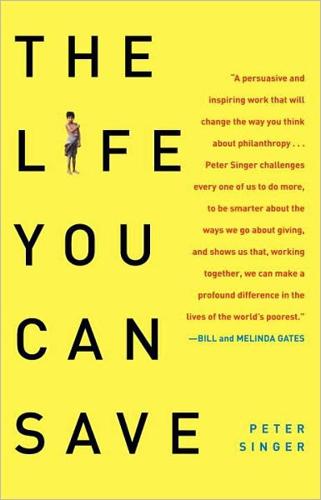
Life You Can Save: Acting Now to End World Poverty
by
Peter Singer
Published 3 Mar 2009
Bib Latane and John Darley, The Unresponsive Bystander, chapters 6 and 7. 21. There is a substantial literature on the ultimatum game. For a useful discussion, see Martin Nowak, Karen Page, and Karl Sigmund, “Fairness Versus Reason in the Ultimatum Game,” Science 2W (2000), pp. 1773-75. 22. S. F. Brosnan and F.B.M. de Waal, “Monkeys Reject Unequal Pay,” Nature 425 (September 18, 2003), pp. 297-99. 23. Kathleen Vohs, Nicole Mead, and Miranda Goode, “The Psychological Consequences of Money,” Science 314 (2006), pp. 1154-56. 24. Richard Titmuss, The Gifi Relationship: From Human Blood to Social Policy (London: Allen & Unwin, 1970). 25.
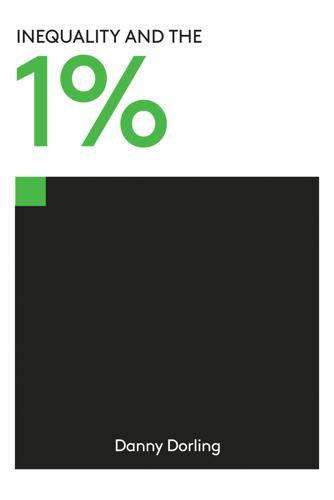
Inequality and the 1%
by
Danny Dorling
Published 6 Oct 2014
And it is not just us. A paper was published in Nature in 2003 concerning experiments with monkeys being fed with cucumbers, or preferably grapes, in which the monkeys rejected being rewarded unequally, opting for no reward rather than an unfair one. S. F. Brosnan and F. B. M. de Waal, ‘Monkeys Reject Unequal Pay’, Nature 425 (2003). 23. See the description of top bosses and the high frequency of unfortunate childhood experiences suffered by many of them in R. Peston, Who Runs Britain? And Who’s to Blame for the Economic Mess We’re In? (London: Hodder & Stoughton, 2008). 24. J. Henrich, R. Boyd, S.
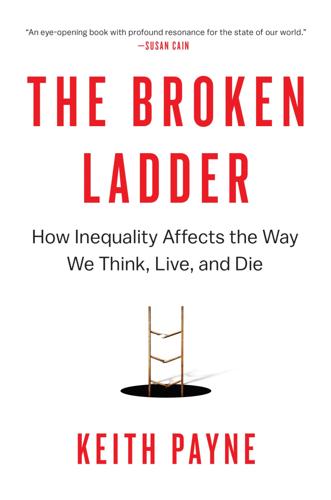
The Broken Ladder
by
Keith Payne
Published 8 May 2017
., “Evolutionary and Biomedical Insights from the Rhesus Macaque Genome,” Science 316 (2007): 222–34. Archaeologists tell us: C. Boehm, Hierarchy in the Forest: The Evolution of Egalitarian Behavior (Cambridge, MA: Harvard University Press, 2009). Brosnan designed a simple exchange game: S. F. Brosnan and F. B. De Waal, “Monkeys Reject Unequal Pay,” Nature 425 (2003): 297–99. son of William Lee Rawls: T. W. M. Pogge, John Rawls: His Life and Theory of Justice, M. Kosch, trans. (New York: Oxford University Press, 2007). Rawls’s theory of justice: J. Rawls, A Theory of Justice (Cambridge, MA: Harvard University Press, 1971; revised edition, 1999).
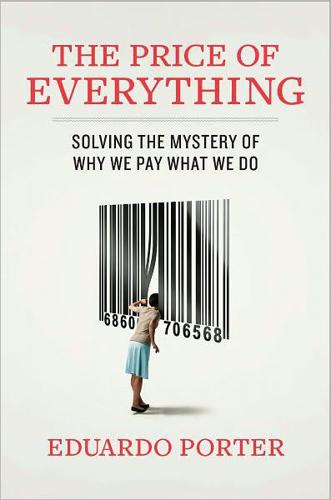
The Price of Everything: And the Hidden Logic of Value
by
Eduardo Porter
Published 4 Jan 2011
Ghods and Shekoufeh Savaj, “Iranian Model of Paid and Regulated Living-Unrelated Kidney Donation,” Clinical Journal of the American Society of Nephrology, Vol. 1, 2006, pp. 616-625; and Hassan Ibrahim, Robert Foley, LiPing Tan, Tyson Rogers, Robert Bailey, Hongfei Guo, Cynthia Gross, and Arthur Matas, “Long-Term Consequences of Kidney Donation,” New England Journal of Medicine, Vol. 360, No. 5, January 2009, pp. 459-469. 177-178 Darwin’s Price System: The experiments about monkeys’ sense of fairness are described in Sarah Brosnan and Frans de Waal, “Monkeys Reject Unequal Pay,” Nature, Vol. 425, September 18, 2003, pp. 297-299. 179-181 The Price of Faith: Pascal’s wager is described in Blaise Pascal, Pensées, translated by W. F. Trotter, 1910, Section IV: On the Means of Belief, paragraph 233 (at oregonstate.edu/instruct/phl302/texts/pascal/pensees-contents.html, accessed 07/18/2010). 182-185 The Benefits of Belief: The discussion of mutual assistance patterns in religious groups draws from Eli Berman, “Sect, Subsidy and Sacrifice: An Economist’s View of Ultra-Orthodox Jews,” Quarterly Journal of Economics, Vol. 65, No. 3, 2003, pp. 905-953; David Landau, Piety and Power: The World of Jewish Fundamentalism (New York: Hill and Wang, 1992), p. 263; Buster Smith and Rodney Stark, “Religious Attendance Relates to Generosity Worldwide,” Gallup Report, September 4, 2009 (www.gallup.com/poll/122807/religious-attendance-relates-generosity-worldwide.aspx. , accessed 07/18/2010); Daniel Chen, “Club Goods and Group Identity: Evidence from Islamic Resurgence During the Indonesian Financial Crisis,” Journal of Political Economy, Vol. 118, No. 2, 2010, pp. 300-354.
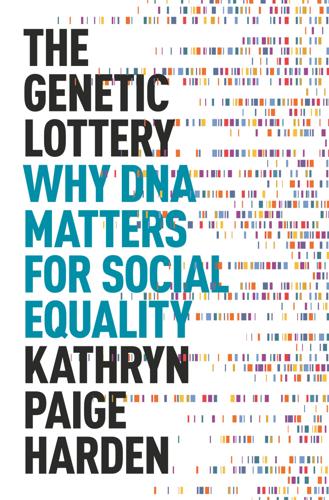
The Genetic Lottery: Why DNA Matters for Social Equality
by
Kathryn Paige Harden
Published 20 Sep 2021
Finally, I am most grateful for my children, my natural experiments in within-family genetic diversity, my most precious preoccupations, and my reasons to hope for a better world. NOTES Chapter 1: Introduction 1. Alex Shaw and Kristina R. Olson, “Children Discard a Resource to Avoid Inequity,” Journal of Experimental Psychology: General 141, no. 2 (2012): 382–95, https://doi.org/10.1037/a0025907. 2. Sarah F. Brosnan and Frans B. M. de Waal, “Monkeys Reject Unequal Pay,” Nature 425, no. 6955 (September 2003): 297–99, https://doi.org/10.1038/nature01963. 3. “Bernie’s Right: 3 Billionaires Really Do Have More Wealth Than Half of America,” Inequality.org, accessed July 24, 2020, https://inequality.org/great-divide/bernie-3-billionaires-more-wealth-half-america/. 4.
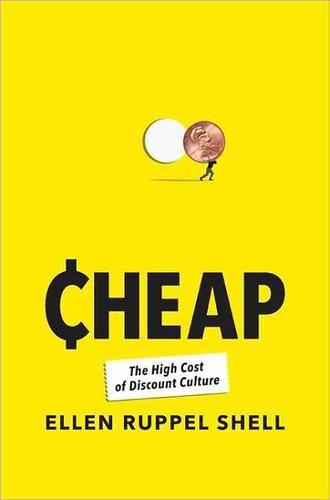
Cheap: The High Cost of Discount Culture
by
Ellen Ruppel Shell
Published 2 Jul 2009
Rockenbach, “Detrimental Effects of Sanctions on Human Altruism,” Nature (March 13, 2003): 137-40. 66 but for other primates: Megan van Wolkenten, Sarah F. Brosnan, and Frans B. de Waal: “Inequity Responses of Monkeys Modified by Effort,” Proceedings of the National Academy of Sciences 104, no. 47 (November 20, 2007): 18854-95. See also Sarah F. Brosnan and Frans B. M. de Waal, “Monkeys Reject Unequal Pay,” Nature 425 (2003): 297-99. 68 “don’t talk to each other much”: Splendid unpublished profile of Daniel Ariely by journalist Andrea Baird. 69 “correlation did not exist”: Ibid. 70 lead us to fits of impulsiveness: This insight came thanks to a discussion with Alan G. Sanfrey, professor of psychology at the University of Arizona. 73 not their execution: Emily Singer, “The Real Pain of Dread,” Technology Review (May 18, 2006), available online at http://www.technologyreview.com/Biotech/16887/page1. 73 nucleus accumbens went quiet: In addition to my interviews with Dr.
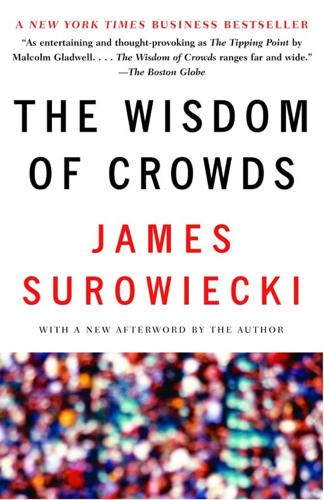
The Wisdom of Crowds
by
James Surowiecki
Published 1 Jan 2004
An excellent study of the way people play the ultimatum game in different countries is Alvin E. Roth, Vesna Prasnikar, Masahiro Okuno-Fujiwara, and Shmuel Zamir, “Bargaining and Market Behavior in Jerusalem, Ljubljana, Pittsburgh, and Tokyo: An Experimental Study,” American Economic Review 81 (1991): 1068–95. On the capuchins, see Sarah F. Brosnan and Frans B. M. de Waal, “Monkeys Reject Unequal Pay,” Nature 425 (2003): 297–99. See Alberto Alesina, Rafael di Tella, and Robert MacCulloch, “Inequality and Happiness: Are Europeans and Americans Different?,” National Bureau of Economic Research working paper no. 8198 (2001). A later version of this paper is available at http://www.people.hbs.edu/rditella.
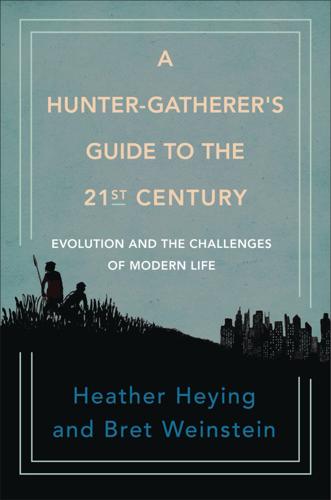
A Hunter-Gatherer's Guide to the 21st Century: Evolution and the Challenges of Modern Life
by
Heather Heying
and
Bret Weinstein
Published 14 Sep 2021
The better angels of our nature: Group stability and the evolution of moral tension. Evolution and Human Behavior, 26(1): 47–63. 16. Cheney, D. L., and Seyfarth, R. M., 2007. Baboon Metaphysics: The Evolution of a Social Mind. Chicago: University of Chicago Press. 17. Brosnan, S. F., and de Waal, F. B., 2003. Monkeys reject unequal pay. Nature, 425(6955): 297–299. 18. Adams, J., et al., 1999. National household survey on drug abuse data collection. Final report, as cited in Green, T., Gehrke, B., and Bardo, M., 2002. Environmental enrichment decreases intravenous amphetamine self-administration in rats: Dose-response functions for fixed- and progressive-ratio schedules.
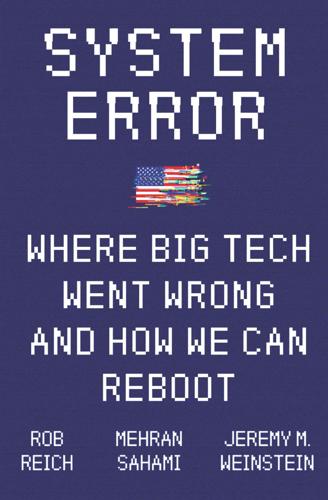
System Error: Where Big Tech Went Wrong and How We Can Reboot
by
Rob Reich
,
Mehran Sahami
and
Jeremy M. Weinstein
Published 6 Sep 2021
several common specifications of fairness are incompatible: Alexandra Choulde-chova, “Fair Prediction with Disparate Impact,” Big Data 5, no. 2 (June 1, 2017): 153–63; Jon Kleinberg, Sendhil Mullainathan, and Manish Raghavan, “Inherent Trade-offs in the Fair Determination of Risk Scores,” Proceedings of Innovations in Theoretical Computer Science 67, no. 43 (January 11, 2017): 1–23. Two monkeys sat in adjacent cages: Sarah F. Brosnan and Frans B. M. de Waal, “Monkeys Reject Unequal Pay,” Nature 425 (September 18, 2003): 297–99, https://doi.org/10.1038/nature01963. The law eliminated cash bail: Vanessa Romo, “California Becomes First State to End Cash Bail After 40-Year Fight,” National Public Radio, August 28, 2018, https://www.npr.org/2018/08/28/642795284/california-becomes-first-state-to-end-cash-bail.
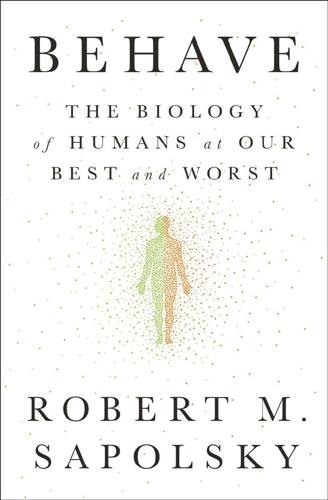
Behave: The Biology of Humans at Our Best and Worst
by
Robert M. Sapolsky
Published 1 May 2017
But monkey 2 gets some cucumber, which blows compared with grapes—capuchins prefer grapes to cucumber 90 percent of the time. Monkey 2 was shortchanged. And monkey 2 would then typically fling the cucumber at the human or bash around in frustration. Most consistently, they wouldn’t give the pebble the next time. As the Nature paper was entitled, “Monkeys reject unequal pay.” This response has since been demonstrated in various macaque monkey species, crows, ravens, and dogs (where the dog’s “work” would be shaking her paw).*13 Subsequent work by Brosnan, de Waal, and others fleshed out this phenomenon further:14 One criticism of the original study was that maybe capuchins refused to work for cucumbers because grapes were visible, regardless of whether the other guy was getting paid in grapes.
…
Miller, “The Roots of Morality,” Sci 320 (2008): 734. 11. For this entire section on rudiments of morality in young children, see the excellent P. Bloom, Just Babies: The Origins of Good and Evil (Portland, OR: Broadway Books, 2014). This source applies to the subsequent half dozen paragraphs. 12. S. F. Brosnan and F. B. M. de Waal, “Monkeys Reject Unequal Pay,” Nat 425 (2003): 297. 13. F. Range et al., “The Absence of Reward Induces Inequity Aversion in Dogs,” PNAS 106 (2009): 340; C. Wynne “Fair Refusal by Capuchin Monkeys,” Nat 428 (2004): 140; D. Dubreuil et al., “Are Capuchin Monkeys (Cebus apella) Inequity Averse?” Proc Royal Soc of London B 273 (2006): 1223. 14.
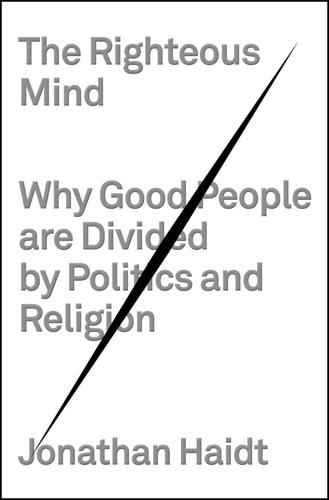
The Righteous Mind: Why Good People Are Divided by Politics and Religion
by
Jonathan Haidt
Published 13 Mar 2012
Brooks, A. C. 2006. Who Really Cares: The Surprising Truth About Compassionate Conservatism. New York: Basic Books. Brosnan, S. F. 2006. “Nonhuman Species’ Reactions to Inequity and Their Implications for Fairness.” Social Justice Research 19:153–85. Brosnan, S. F., and F. de Waal. 2003. “Monkeys Reject Unequal Pay.” Nature 425:297–99. Buckholtz, J. W., C. L. Asplund, P. E. Dux, D. H. Zald, J. C. Gore, O. D. Jones, et al. 2008. “The Neural Correlates of Third-Party Punishment.” Neuron 60:930–40. Burke, E. 2003/1790. Reflections on the Revolution in France. New Haven, CT: Yale University Press. Burns, J.
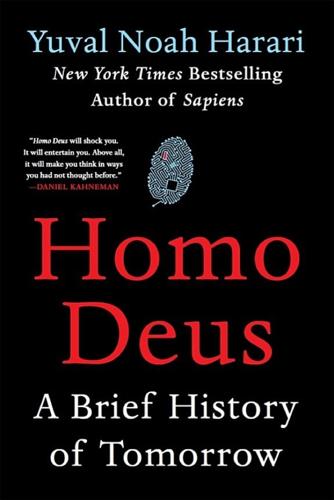
Homo Deus: A Brief History of Tomorrow
by
Yuval Noah Harari
Published 1 Mar 2015
NAEMI09, ‘Nicolae Ceauşescu LAST SPEECH (english subtitles) part 1 of 2’, 22 April 2010, accessed 21 December 2014, http://www.youtube.com/watch?v=wWIbCtz_Xwk. 21. Tom Gallagher, Theft of a Nation: Romania since Communism (London: Hurst, 2005). 22. Robin Dunbar, Grooming, Gossip, and the Evolution of Language (Cambridge, MA: Harvard University Press, 1998). 23. TVP University, ‘Capuchin Monkeys Reject Unequal Pay’, 15 December 2012, accessed 21 December 2014, http://www.youtube.com/watch?v=lKhAd0Tyny0. 24. Quoted in Christopher Duffy, Military Experience in the Age of Reason (London: Routledge, 2005), 98–9. 25. Serhii Ploghy, The Last Empire: The Final Days of the Soviet Union (London: Oneworld, 2014), 309. 4 The Storytellers 1.
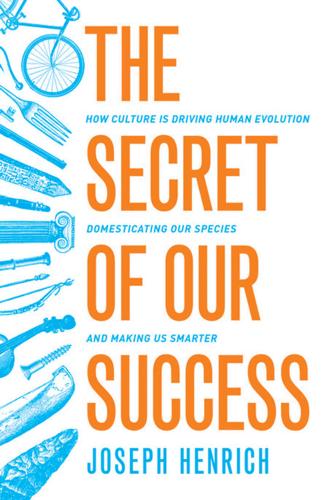
The Secret of Our Success: How Culture Is Driving Human Evolution, Domesticating Our Species, and Making Us Smarter
by
Joseph Henrich
Published 27 Oct 2015
Henrich, and H. C. Barrett. 2014. “Adaptive content biases in learning about animals across the lifecourse.” Human Nature 25:181–199. Broesch, T. 2011. Social Learning across Cultures: Universality and Cultural Variability. PhD diss., Emory University. Brosnan, S., and F.B.M. de Waal. 2003. “Monkeys reject unequal pay.” Nature 425:297–299. Brosnan, S. F., J. B. Silk, J. Henrich, M. C. Mareno, S. P. Lambeth, and S. J. Schapiro. 2009. “Chimpanzees (Pan troglodytes) do not develop contingent reciprocity in an experimental task.” Animal Cognition 12 (4):587–597. Brown, G. R., T. E. Dickins, R. Sear, and K.
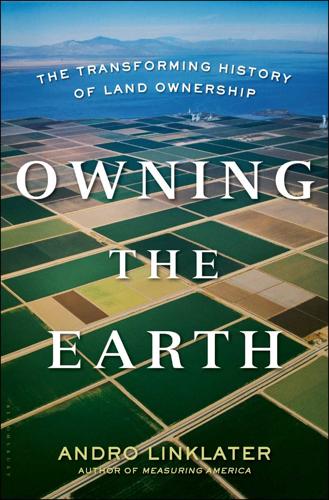
Owning the Earth: The Transforming History of Land Ownership
by
Andro Linklater
Published 12 Nov 2013
Reconstructing the National Income of Britain and Holland, c. 1270/1500 to 1850. Leverhulme Trust, Ref f/100215AR. Brophy, James M. “Salus publica suprema lex: Prussian Businessmen in the New Era and Constitutional Conflict.” Central European History 28, no. 2 (1995). Brosnan, Sarah and Frans B. M. de Waal, “Monkeys reject unequal pay.” Nature 428, 140 (Mar. 2004). Byres, Terence J. “The Landlord Class, Peasant Differentiation, Class Struggle and the Transition to Capitalism: England, France and Prussia Compared.” School of Oriental and African Studies, University of London. Paper for Land, Poverty, Social Justice & Development conference, Jan. 2006.